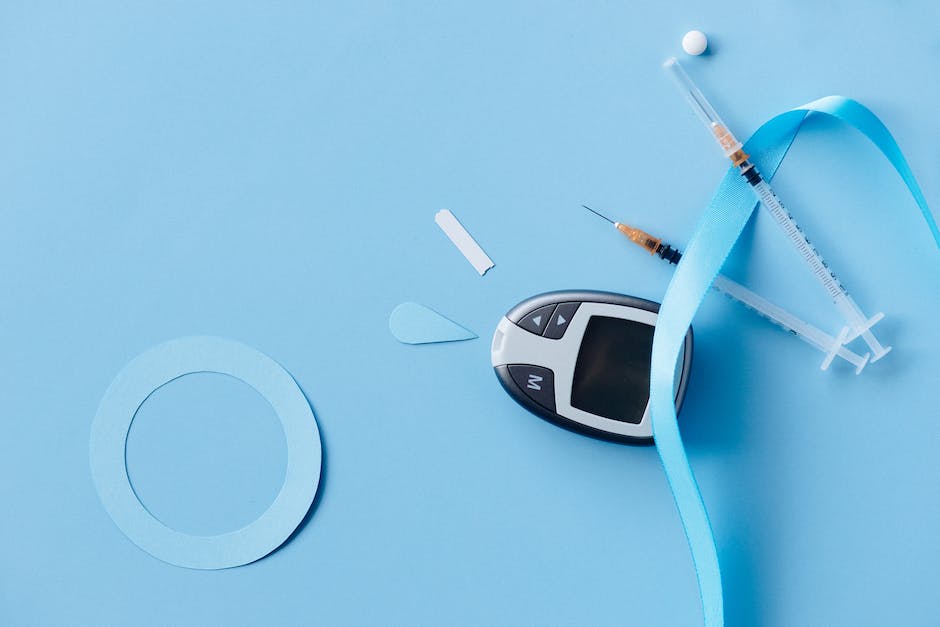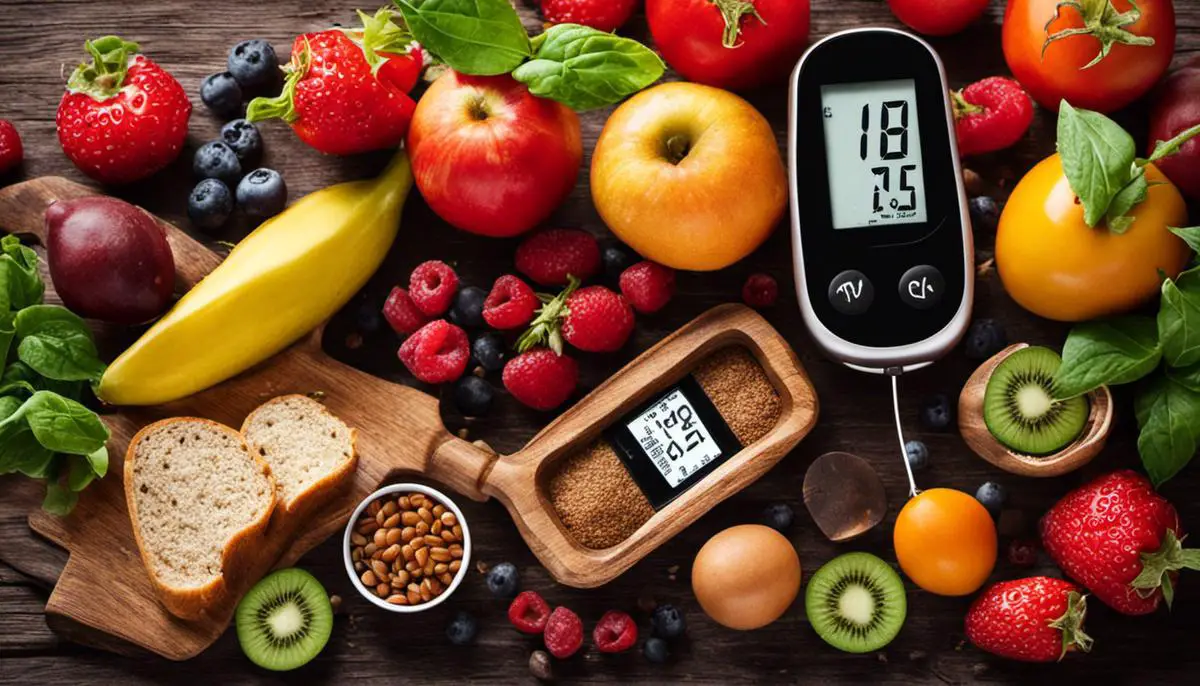Diabetes, a complex health condition with various classifications, profoundly affects the body’s ability to process insulin and regulate glucose levels. With constant exposure to its implications, the existence of low blood sugar, also known as hypoglycemia, stands as a significant concern among diabetics. In an effort to foster a comprehensive understanding of this critical subject, we explore the fundamental nature of diabetes, its various types, and the implications of insulin imbalances. We dive deep into the causes and symptoms of hypoglycemia to help you identify scenarios of potentially falling blood sugar levels. It is our hope that this information will help lay a solid foundation for understanding the extensive discourse that follows.
Understanding Diabetes and Hypoglycemia
Understanding Diabetes and Hypoglycemia
Diabetes is a chronic health condition that affects the body’s ability to process blood sugars or glucose. There are primarily two types of diabetes: Type 1 and Type 2. Type 1 diabetes is an autoimmune condition that affects the body’s ability to produce insulin, a hormone that allows cells to absorb and use glucose for energy. Type 2 diabetes, the most common form, occurs when the body becomes resistant to insulin or does not produce enough insulin, leading to high blood sugar levels.
Importance of Insulin and Glucose
Insulin and glucose play vital roles in the body’s functioning. Glucose, obtained from the foods we eat, is the primary energy source for all body cells. Insulin, produced by the pancreas, helps cells absorb glucose from the bloodstream. When the body does not produce enough insulin or cells resist its effects, glucose cannot enter the cells and instead accumulates in the bloodstream, resulting in high blood sugar or hyperglycemia.
Insulin Imbalances and their Effects
Imbalances in insulin can lead to serious health issues, such as hyperglycemia and hypoglycemia. Hyperglycemia occurs when there is too much glucose in the blood, and hypoglycemia happens when blood sugar levels are too low. Both conditions can be life-threatening if not treated promptly.
Hypoglycemia in Diabetics
For individuals with diabetes, hypoglycemia, also known as low blood sugar, is a concerning health issue. It commonly occurs in people who take insulin or other glucose-lowering medications to manage their diabetes. Hypoglycemia can happen when these individuals take too much medication, do not eat enough, or exercise more than usual. Symptoms include shakiness, sweating, confusion, hunger, and potential loss of consciousness if untreated.
The Concern of Hypoglycemia
Hypoglycemia can be especially dangerous because the brain, reliant on glucose as a primary energy source, is left without the necessary fuel. This could lead to seizures, loss of consciousness, and in severe cases, death. Thus, it is crucial for anyone diagnosed with diabetes to recognize the signs of hypoglycemia and to know how to react.
Guidelines for Blood Sugar Regulation in Diabetic Individuals
Effective regulation of blood sugar levels is an indispensable part of diabetes management. By gaining an understanding of how aspects like food, physical activity, emotional stress, and medication influence blood glucose levels, individuals with diabetes can avoid drastic fluctuations in blood sugar. Regularly monitoring blood glucose, maintaining a nutritious diet, and adhering to the prescribed medication regimen are fundamental in preserving an optimal quality of life for those managing diabetes.

Causes and Symptoms of Low Blood Sugar
Comprehending the Phenomenon of Low Blood Sugar in Diabetics
Hypoglycemia, or low blood sugar, transpires when the glucose concentration in the blood dips below its normal range. This is especially critical for diabetics, particularly those on certain medications such as insulin or sulfonylureas, as achieving the correct balance of blood sugar levels is a pivotal element of their health management. Alterations to this balance can give rise to health complications that can span from being mild to becoming serious in nature.
Medications That Can Trigger Low Blood Sugar
Several medications can lower blood sugar levels in diabetics. Insulin and other drugs designed to control high blood sugar in people with diabetes, such as sulfonylureas, are the most common culprits. These pills and injections work by stimulating the body to produce or absorb more insulin. However, if the dosage is too high or taken improperly, it can lead to hypoglycemia. To prevent this, healthcare providers carefully calibrate the dosage to the patient’s individual needs, though adjustments may be necessary over time.
Skipping Meals and Low Blood Sugar in Diabetics
Skipping meals or eating less than normal can also cause blood sugar levels to drop. This is because food is the body’s main source of glucose. When you skip a meal, you miss this input of glucose, and your blood sugar levels can fall as a result. Similarly, if you eat a meal but do not consume enough carbohydrates, your body may not receive the glucose it needs to maintain normal blood sugar levels. For people with diabetes, it’s essential to maintain a regular eating schedule and monitor their carb intake.
Effects of Intense Exercise on Blood Glucose Levels
Exercise can be a double-edged sword for diabetics. On one hand, it helps improve insulin sensitivity and thus supports better blood sugar control. But on the other hand, very intense or prolonged physical activity can cause blood sugar levels to drop too low. This is because the body uses up glucose more rapidly during exercise, depleting the stores faster than they can be replenished. Hence, people with diabetes need to monitor their blood sugar levels before and after workouts and may need to adjust their food intake or medication dosages accordingly.
Warning Symptoms of Low Blood Sugar in Diabetics
Although symptoms can vary from person to person, common warning signs of low blood sugar include tremors or jitteriness, excessive sweating, anxiety or a feeling of nervousness, and increased heart rate. Other symptoms might also be present, such as blurred vision, headache, irritability, fatigue or weakness, and even difficulty concentrating or confusion. Severe hypoglycemia can result in seizures or loss of consciousness. If you have diabetes and are experiencing these symptoms, it’s important to check your blood sugar levels immediately and speak with your healthcare provider.
Identifying and Managing Drop in Blood Sugar Levels
Regular monitoring of blood sugar levels is key in managing diabetes and preventing hypoglycemia. However, everyone’s bodies react differently, and what’s normal for one person may not be for another. It’s essential to work closely with a healthcare provider to determine your target blood sugar levels and understand how to respond to different readings.
Maintaining a healthy lifestyle holds enormous significance in managing diabetes. However, it also becomes essential to highlight the psychological effects of diabetes on an individual. By offering emotional encouragement and the right education about managing this condition, we open doors to a more empowered life for individuals with diabetes. This proactive approach can substantially minimize the occurrence of hypoglycemic incidents.

Managing and Preventing Low Blood Sugar in Diabetics
Demystifying Low Blood Sugar (Hypoglycemia) in Diabetics
Hypoglycemia, commonly referred to as low blood sugar, is a condition in diabetics where the blood sugar levels dip below a healthy range. Identifying the signs of hypoglycemia, such as symptoms like confusion, shakiness, and dizziness, becomes critical. In severe cases, it can lead to loss of consciousness. Recurring hypoglycemia can pave the way for more serious health issues, including heart disease and potential brain damage.
Dietary Recommendations
Maintaining a balanced diet is crucial in managing blood sugar levels. Consuming regular meals and snacks that are rich in fiber and lean proteins can help prevent blood sugar spikes and crashes. Whole grains, lean meats, fruits, vegetables, and dairy products all contribute to a healthy diabetic diet.
Eating meals and snacks at consistent times each day can also help keep blood sugar levels stable. For those on insulin or certain oral medications, it’s important to coordinate meal and medication times to prevent low blood sugar.
Exercise and Diabetes
Regular exercise can lower blood sugar levels and improve insulin sensitivity. Safe exercise routines can range from brisk walking to cycling, swimming or even gardening, depending on an individual’s physical condition and preferences. It’s recommended that diabetics consult with healthcare professionals to create an exercise plan suitable for their circumstances.
However, diabetics should monitor blood glucose levels before, during, and after exercise. Blood sugar can drop too low during activities, leading to hypoglycemia. Consuming a small snack prior to exercise can help provide the necessary glucose for energy.
Adherence and Adjustment to Medication
People with diabetes should consistently take their prescribed medications to manage blood sugar levels. Nevertheless, if hypoglycemia occurs regularly, patients may need adjustments to their medication routine. Changes or adjustments to medication should only be made in consultation with health care professionals.
Monitoring Blood Sugar Levels
Regular monitoring of blood sugar levels allows diabetics to adjust their meal plans, physical activities, and medications accurately. Continual monitoring can provide valuable feedback for health care professionals as well. By doing regular checks, individuals can identify patterns and make timely interventions to prevent low blood sugar levels.
People with diabetes may experience blood glucose levels dropping significantly during the night. Therefore, continuous glucose monitoring (CGM) can be useful, especially for those taking insulin. The CGM device checks blood glucose levels at regular intervals throughout the day and night, alarming the user when levels are falling quickly or have dropped too low.
Proper Sleep and Stress Control
Having a regular sleep schedule and managing stress are also essential for blood sugar control. Evidence suggests that inadequate sleep affects insulin sensitivity and can lead to increased blood sugar levels. Additionally, high stress levels can provoke hormone responses that increase blood sugar.

The complexities of managing and preventing hypoglycemia in diabetes patients are as involving as the condition itself, demanding consistent attention, discipline, and dedication. Lifestyle modifications including dietary changes, effective exercise routines, faithful adherence to medication regiments, and regular monitoring of blood sugar levels can make all the difference. With each step listed, backed by professional medical advice and personalized attention, diabetic patients can lead healthy, fulfilling lives. Learning to navigate the convoluted waters of diabetes and hypoglycemia is more than an act of self-preservation; it is a journey towards enlightenment, empowerment, and ultimately, improved health.
